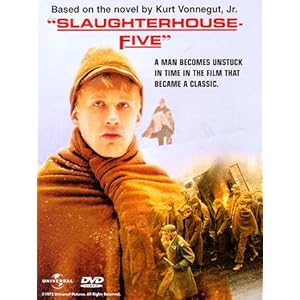
Each time I try to put myself in Billy Pilgrim's shoes I get this image. The image of loneliness, of desperation and sorrow. That is how I imagine Billy's life, miserable.
At first, when he mentioned his wife for the first time, I thought that there was actually somebody there by his side, someone he fell in love with because of the company she gave him. Guess what? He didn't want to marry her. I think he felt even less lonely without his wife by his side. It's not that she wasn't by his side all the time, because she literally was. It's that figuratively she wasn't. Valencia cared more about what Billy had to say about war, not his feelings. Plus, Billy didn't even like or trust her that much to tell her about his secret life.
How did Billy even come up to be the way he is? Take a look at his mother, such a religious, smart, and good woman. Don't get me wrong, I'm not saying that Billy is the opposite, they are just completely different in many ways. For example when she says "People would be surprised if they knew how much in this world was due to prayers" (pg. 103). This shows two points of view completely different, one where everyone has the correct morals and you must hope and pray and love, and another one that is basically reality.
That's the word, reality. What is it, reality? Are Tralfamadorians real? I don't know, maybe for Billy Pligrim they are. You actually never know what is real for a person. And you can't please them either, that is why there will never be a balanced, peaceful and equal society. You can't please everyone. Hence, World War II, Billy Pilgrim's reality.
I don't know very well Kurt Vonnegut, haven't read many of his books. But I it seems like he is trying to tell us something through many different messages, for example, the Tralfamadorians. He has experienced war, He has lived it, I know he is trying to tell us something through this. Obviously, I mean, it's an anti-war book, but I know there's something more. There's something more.

